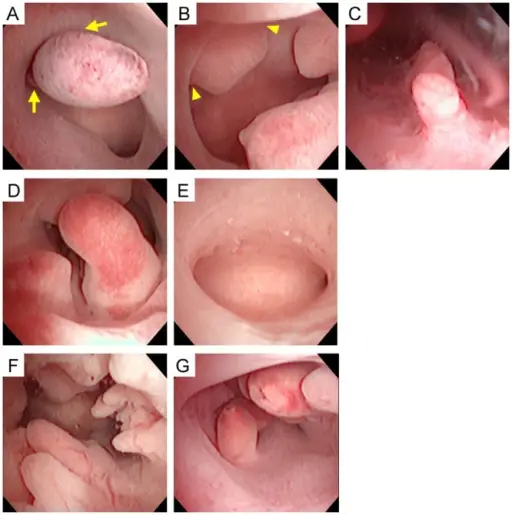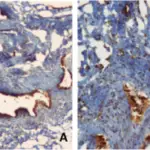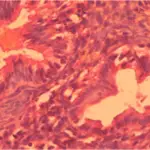Endometrial polyps are small, soft growths on the inside of a woman’s uterus, or womb. They come from the tissue that lines the uterus, called the endometrium.
What is the Pathology of Endometrial Polyps?
The pathology of endometrial polyps is:
-Etiology: The cause of endometrial polyps is not exactly known but it tend to grow when there is more of the hormone estrogen in the body.
-Genes involved: RAS gene mutations.
-Pathogenesis: The sequence of events that lead to endometrial polyps are unknown.
-Morphology: The morphology associated with endometrial polyps shows smooth, spherical or cylindrical in structure and is tan to yellow in color.
-Histology: The histology associated with endometrial polyps shows atrophic surface epithelium, angulated, tubular or cystically dilated glands.
How does Endometrial Polyps Present?
Patients with endometrial polyps typically females between 40 and 50 years old, but rarely occurs at younger age. The symptoms, features, and clinical findings associated with endometrial polyps include: irregular menstrual bleeding, excessively heavy periods, infertility.
How is Endometrial Polyps Diagnosed?
Endometrial polyps is diagnosed by hysteroscopy, endometrial biopsy, ultrasound, saline sonogram.
How is Endometrial Polyps Treated?
Endometrial polyps is treated by hormonal medications, surgical removal, and curettage.
What is the Prognosis of Endometrial Polyps?
The prognosis of endometrial polyps is good. Treatment of small polyps is unnecessary unless you’re at risk of uterine cancer.



